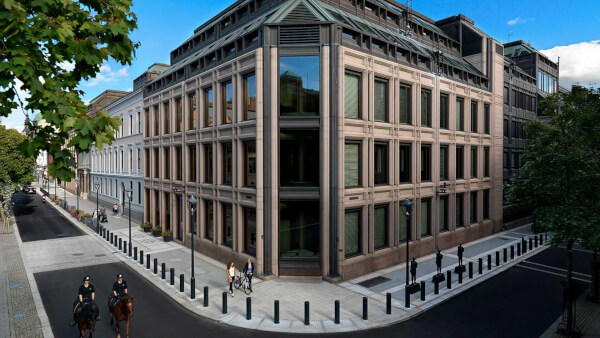-
Hertz (HTZ.US) filed for bankruptcy at the end of May
-
Company's share price surged this month
-
Most of Hertz debt is backed with its vehicles
-
Small chance of avoiding bankruptcy
Coronavirus pandemic created crisis-like conditions in the global markets with many companies either filing for bankruptcy or being at risk of doing so. Some investors see opportunity in such companies and decide to buy shares even after the company enters bankruptcy. Hertz is a perfect example as, in spite of filing for bankruptcy protection, its shares were trading 500% month-to-date higher at one point yesterday and we are just 10 days into June.
Why Hertz filed for bankruptcy?
Hertz (HTZ.US) is one of the biggest car rental companies in the world. Apart from offering rental services in popular tourist locations, it also has outlets at most of the busiests airports in the World. Coronavirus pandemic freezed tourism activity and brought passenger flights to a halt. In turn, Hertz saw the majority of demand for its services evaporate. Lack of customers, big amount of debt and poor business outlook for the future put the company under significant stress. As the company failed to reach an agreement with lenders, filing for bankruptcy protection looked as the only way forward. Hertz filed for the Chapter 11 bankruptcy protection on May 22.
 Recent surge in the share price of Hertz has been supported with a massive increase in trading volume. In fact, almost twice as many shares were traded during the first 9 days of June 2020 than during the whole 2019! Source: Bloomberg
Recent surge in the share price of Hertz has been supported with a massive increase in trading volume. In fact, almost twice as many shares were traded during the first 9 days of June 2020 than during the whole 2019! Source: Bloomberg
Chapter 11. What's next?
Filing for bankruptcy protection under Chapter 11 allows the company to enter a reorganization process. Major stakeholders in Hertz will now prepare and agree on a reorganization plan. If US federal judges and creditors confirm it, agreement becomes binding and reorganization follows. However, this is not the only outcome of the Chapter 11 proceeding. Parties may fail to reach an agreement and in such case the company will likely enter bankruptcy under Chapter 7. Chapter 7 specifies bankruptcy through liquidation of assets and distributing proceeds among involved parties. Third possible scenario sees bankruptcy filing being dismissed, making the company lose protection and allow creditors to collect claims. However, companies usually file for bankruptcy once again in such a situation.
Can bankruptcy be avoided?
Case of Hertz is a difficult one and it may be difficult to save the company from bankruptcy. Hertz had around $18.7 billion in long-term debt at the end of Q1 2020. However, it is said that as much as $15 billion of this debt is in asset-backed securities linked to Hertz' car fleet. Satisfying claims of creditors would likely leave Hertz with little to no cars left and, of course, this is not a good outcome for car rental companies. Creditors could show good faith and allow debt repayments to be postponed but there aren't many reasons for them to do so. First of all, Hertz is unable to compensate them for taking higher risk for longer. Secondly, the business outlook for Hertz is very poor and the company will likely continue to struggle until air travel returns to normal. Keep in mind that US courts are not allowed to confirm reorganization plans that will most likely lead to another bankruptcy proceeding.
Apart from the aforementioned $15 billion in asset-backed securities, Hertz also has over $3 billion in unsecured debt. Shareholders will not be paid a penny until secured and unsecured debt is repaid. Restructuring is often a long process and shareholders are repaid at the very end of it.
 Share price of Hertz (HTZ.US) rebounded at the beginning of June, backed by strong trading volumes. Price reached the upper limit of the Overbalance structure and began to pull back. Today's pre-market trades suggest the stock will launch a session with a double-digit decline. Source: xStation5
Share price of Hertz (HTZ.US) rebounded at the beginning of June, backed by strong trading volumes. Price reached the upper limit of the Overbalance structure and began to pull back. Today's pre-market trades suggest the stock will launch a session with a double-digit decline. Source: xStation5
High risk game
Summing all of the above, Hertz will have to go to great lengths to avoid bankruptcy. It is possible but given that Hertz' problems are not necessarily of a short-term nature, there could be little rationale for it. Hertz shares plunged more than 95% between February and June for a very good reason - fundamentals simply do not support the view that the company can make it through the crisis. While shares may rise on speculative flows for now, the market will eventually catch up to reality as the situation unfolds.

Politics batter the UK bond market once more, as Starmer remains under pressure

STM is growing stronger thanks to a new partnership with AWS!

The Week Ahead

Kongsberg Gruppen after earnings: The company catches up with the sector
This content has been created by XTB S.A. This service is provided by XTB S.A., with its registered office in Warsaw, at Prosta 67, 00-838 Warsaw, Poland, entered in the register of entrepreneurs of the National Court Register (Krajowy Rejestr Sądowy) conducted by District Court for the Capital City of Warsaw, XII Commercial Division of the National Court Register under KRS number 0000217580, REGON number 015803782 and Tax Identification Number (NIP) 527-24-43-955, with the fully paid up share capital in the amount of PLN 5.869.181,75. XTB S.A. conducts brokerage activities on the basis of the license granted by Polish Securities and Exchange Commission on 8th November 2005 No. DDM-M-4021-57-1/2005 and is supervised by Polish Supervision Authority.


